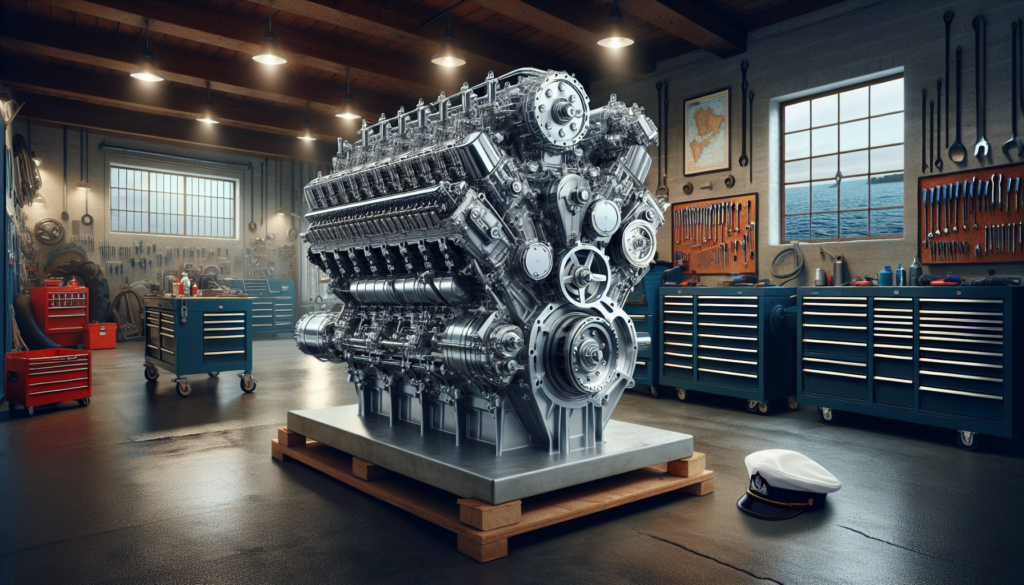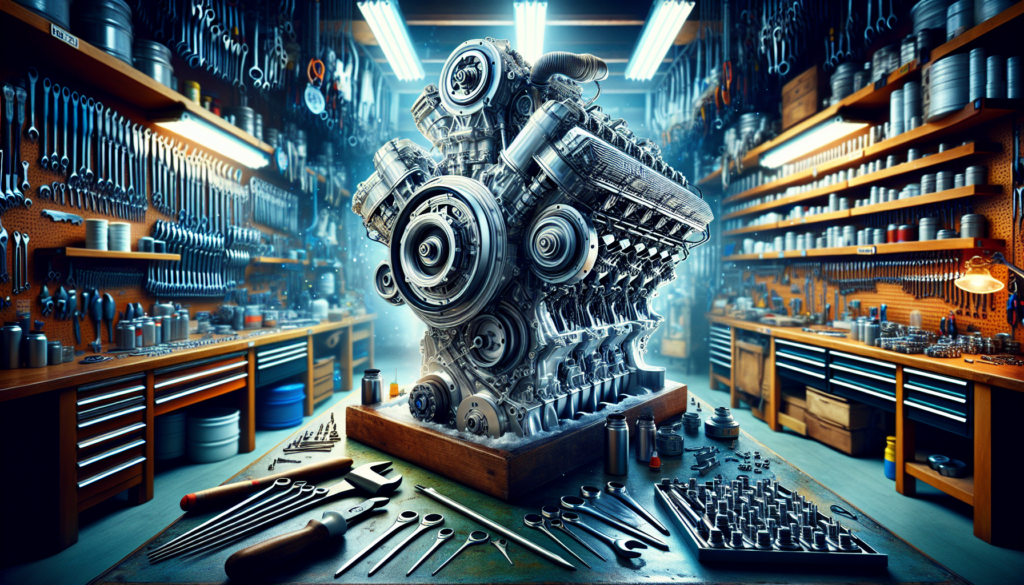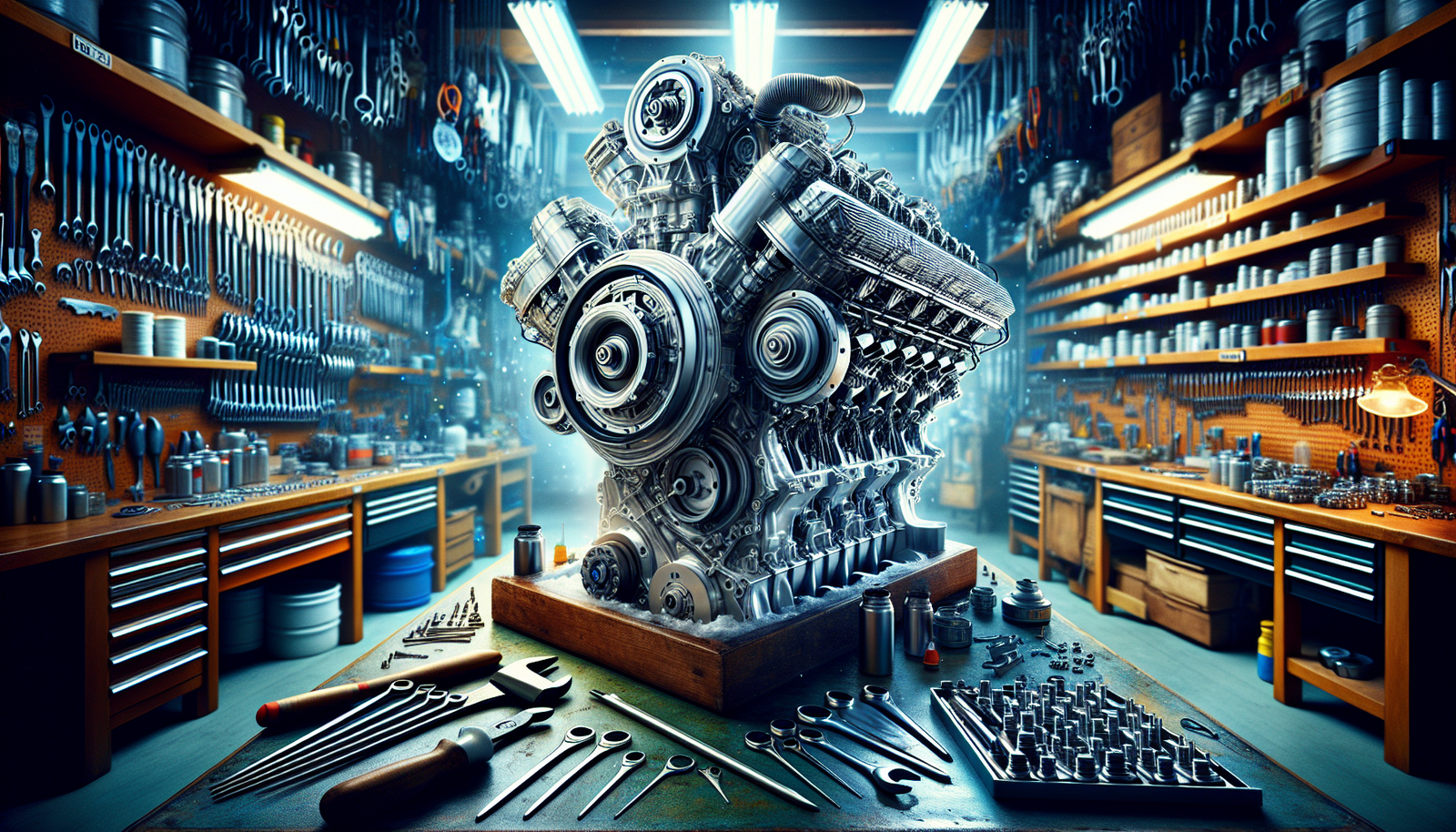Looking after your boat means safeguarding more than just the hull; it involves securing the heart of your marine treasure – the boat engine. “Top Boat Engine Insurance Tips For Protecting Your Investment” provides you with expert advice on how to best protect your valuable engine. It’s about maintaining peace of mind while you’re out on the water. From understanding different insurance plans and their coverages to choosing the type that fits your specific needs, this article guides you through the entire process. Ensuring your boat engine is insured is a key step in making sure your investment stays afloat, and it’s high time you discovered how.

Understanding the Need for Boat Engine Insurance
Owning a boat is one thing, but ensuring its longevity and maintaining its value is another crucial aspect often disregarded or overlooked. One of the very integral parts of your boat is the engine, which will be our main focus. Let’s dive into the reasons why you need to pay serious attention to boat engine insurance.
Recognizing the value of your boat engine
Your boat, like a car, depends hugely on its engine—the heart that keeps it alive and moving. A failing or compromised engine can practically render your boat useless, and this is certainly not a situation you’d want to end up in, especially if boating is not just a hobby but a means of livelihood for you. Recognizing the value of your boat engine is the first step towards understanding the need for boat engine insurance.
Costs resulting from engine damage or failure
Boat engines, depending on their brand, type, and how sophisticated they are, can be quite an investment. Damages or failure can lead to significant repair or replacement costs that can create a deep hole in your pocket. Additionally, if these damages resulted in an accident, you might also have to cover medical and liability expenses, all of which can be financially distressing.
Common risks and threats to boat engines
Despite your best efforts to maintain your boat engine, common risks and threats can result in unexpected problems. For instance, there could be general wear and tear, mechanical failure from manufacturer’s defects, electrical issues, or even damage from accidents and harsh weather conditions. It’s key to be aware of these potential threats to better prepare and manage them with the help of boat engine insurance.
Scope and Limitations of Standard Boat Insurance
There’s a common misconception that standard boat insurance should provide ample coverage for all aspects of your boat—including the engine. However, that’s not always the case, and a deeper understanding is required to navigate what’s often included and not included in the scope of standard boat insurance.
Types of coverage typically included
Standard boat insurance typically includes coverage for physical damages, liability for injuries, and damages to other boats or properties. It may also cover medical payments, uninsured boater coverage, and fuel spill liability.
Instances where standard boat insurance may not suffice
However, there are certain instances where standard boat insurance may not suffice. Engine damage caused by wear and tear, corrosion, manufacturer’s defect, or lack of maintenance might be excluded. Also, depending on your policy, there may be limitations in compensation for the actual loss you suffered, especially concerning depreciation.
Why boat engine insurance is a critical add-on
Given these limitations, securing a boat engine insurance policy serves as a critical add-on. It offers additional coverage tailored to the risks your boat engine may encounter, ensuring that you’ll be covered for unexpected repair or replacement costs.
Choosing the Right Boat Engine Insurance
choosing the right boat engine insurance requires careful consideration and understanding of various factors. The goal is to get comprehensive coverage at a rate that reflects the true value and state of your boat engine.
Factors to consider when purchasing boat engine insurance
When purchasing boat engine insurance, consider factors such as the coverage limits, exclusions, deductibles, the claim process, customer service, and the reliability of the provider. You should also pay attention to the policy’s flexibility, especially if you intend to upgrade or modify your boat engine in the future.
Importance of aligning insurance with the model, age, and usage of your boat engine
Choosing a policy that aligns with your engine’s model, age, and usage can ensure your premium reflects the actual value of your boat engine. For example, if you have a high-powered engine that you use frequently, you may need a policy that offers greater coverage and higher limits, as opposed to a seldom-used, older engine.
Tips for comparing insurance policies and providers
When comparing policies and providers, look at more than just the price. Evaluate the coverage details, exclusions, deductibles, and the responsiveness of the insurance provider. Doing so will help you to choose the provider that best meets your needs, not just the one offering the cheapest premiums.
Importance of Comprehensive Coverage
Comprehensive insurance coverage is key to safeguarding your boat engine from various risks and threats. But, what does it involve, and how does it protect your investment?
Benefits of full coverage insurance
Full coverage insurance protects your boat engine against a range of risks, ensuring that you’ll be able to recover from significant repair or replacement costs after a mishap. Apart from the financial protection, it also offers peace of mind, knowing that your investment is well-covered.
Typical inclusions of comprehensive boat engine policies
Comprehensive boat engine policies typically cover damages resulting from accidents, theft, fires, and severe weather conditions. Some also cover mechanical failures beyond your control. It’s important to read the policy document carefully for any exclusions.
How comprehensive insurance safeguards your investment
By covering various kinds of risks and threats, comprehensive insurance safeguards your boat engine—thereby protecting your investment. Instead of addressing costly repairs out of pocket, the insurance company bears the brunt of the cost.

Marine Survey: An Essential Tool for Determining Insurance Need
A marine survey is like a physical exam for your boat—it evaluates the condition of the boat and all of its components, including the engine. It plays a key role in the process of getting the most appropriate coverage for your needs.
Understanding the role of a marine survey
A marine survey provides a comprehensive report of your boat’s condition and establishes its value. This information is critical for insurers to determine the amount of coverage they’re willing to provide, and at what premium.
How marine surveys influence insurance premiums
If the marine survey reveals that your boat and engine are in excellent condition, you may be able to secure more favorable insurance rates. Conversely, issues discovered during the survey might increase your premiums or result in certain exclusions in your policy.
Tips for preparing for a marine survey
Before a marine survey, make sure your boat is clean and well-maintained. Address any known issues, as poor maintenance can negatively impact your boat’s valuation. Lastly, ensure that all the needed documents and maintenance records are ready for review.
Maintaining Your Boat Engine for Insurance Purposes
regular maintenance doesn’t only keep your boat engine performing at its best; it can also influence your insurance rates.
Role of regular maintenance in preventing engine damage
Regular maintenance is crucial in preventing damage to your boat engine. This includes inspections, oil changes, replacing worn-out components, and immediately addressing any issues that might crop up in the process of usage.
How well-maintained engines influence insurance rates
Well-maintained engines are less likely to encounter problems and are usually favored by insurers. Consequently, consistently demonstrating good maintenance habits can positively impact your insurance rates or eligibility for specific coverages.
Recommended maintenance procedures to keep your engine in top condition
Recommended maintenance procedures usually depend on the specific type and model of your boat engine. Make sure to follow the recommended schedule given by the manufacturer or your boat mechanic.

Navigating Insurance Claims for Boat Engines
After securing a boat engine insurance policy, you need to understand how to navigate the claim process, especially if the unexpected happens.
Understanding the claim process
The claim process begins when you contact your insurance provider reporting damage to or failure of your boat engine. Depending on the terms of your policy, you may be required to provide certain documentation or evidence, and in some cases, an inspection may be required.
How to file a successful claim for engine damage
To file a successful claim, document all the details of the incident leading to the damage, take photos if possible, and submit any repair estimates from professionals. Contact your insurer as soon as possible, as delay can sometimes impact the success of your claim.
Dealing with insurance disputes or denials
If your claim is denied or you dispute the insurer’s assessment, go through your policy again, get an independent assessment if required, and communicate with your provider while keeping records of all interactions. Legal action is always an option if a resolution can’t be reached.
Key Aspects of Boat Engine Insurance Policies
Understanding the details of your boat engine insurance policy is vital. Here are some key aspects you should familiarize yourself with.
Understanding terms and conditions
The fine print matters! Understanding the terms and conditions of your policy is crucial to know what is covered, what’s excluded, and under what circumstances you can make a claim.
Policies on total loss and depreciation
Make sure to understand your insurer’s policies on total loss and depreciation, as these greatly affect your compensation after a claim. Learn how they define ‘total loss’ and how depreciation may be applied in settling your claim.
Variable factors influencing insurance cost
Various factors influence the cost of your insurance. This can include the type and age of your boat engine, your usage, maintenance practices, and previous claim history. Familiarize yourself with these variables to fully understand your premium costs.

Cost Saving Strategies for Boat Engine Insurance
While the peace of mind brought by boat engine insurance is worth the investment, it doesn’t mean you can’t find ways to save some money.
Taking advantage of discounts and rewards
Many insurers offer discounts and rewards for safe boating practices, loyalty, multiple policy discounts, and more. Make sure to inquire about these opportunities.
Weighing the benefits of higher deductibles
Choosing a policy with a higher deductible may lower your premiums. However, make sure it’s an amount you can comfortably afford to pay out-of-pocket should you need to file a claim.
Adopting safe boating practices to reduce insurance costs
Safe boating practices not only minimize the risk of engine damage but can also reduce your insurance costs. Insurers often reward responsible boat owners with lower premiums.
Stay Updated: Renewing and Updating Your Boat Engine Insurance
Keeping your boat engine insurance updated is just as crucial as getting one in the first place.
Keeping your policy up-to-date with boat upgrades and changes
Any upgrades or changes to your boat should be communicated to your insurer as they could affect your coverage needs. Failing to do this might leave you with insufficient coverage when you need it the most.
Reviewing your policy at each renewal
Don’t just auto-renew your policy. Take the time to review it and assess if your coverage is still sufficient. Look for any exclusions or limitations that might need addressing.
Understanding the implications of lapses in coverage
Finally, avoid lapses in your coverage. A lapse can lead to higher premiums or difficulty in finding coverage. If there is a lapse, inform your insurer immediately to understand its implications and find a solution.
In conclusion, getting boat engine insurance is an essential step to protect your investment in the long run. With these key points, you’re now better equipped in understanding and navigating this crucial aspect of boat ownership.

